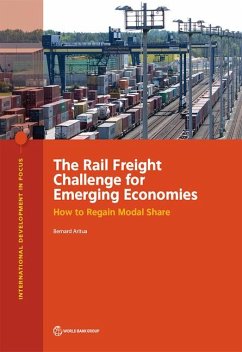This report captures ways in which policy makers and senior officials in railway organizations from emerging economies can accelerate modal shift to rail. Such officials, as well as the general public, aspire for more freight to be moved by rail. The environmental and societal benefits of such a shift are compelling. And yet investment in railways is often not followed by a corresponding increase in freight moved by rail. This report highlights the fact that, in a world of changing global supply chains and logistics, the approach to regaining modal share needs to be different. The expectation that lower cost and efficient rail service will automatically lead to modal shift from road to rail has not been a reality in most emerging economies. Modern railways focus on understanding the logistics of targeted freight and positioning rail transport services as part of an overall logistics system aimed at meeting the needs of customers.








